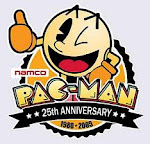 Invented by Sony in 1979 and first marketed in Japan in July 1979, the personal stereo was launched in the UK in 1980 - and was marketed as the Sony Stowaway. 1980 was also the American release year and I believe it had a different name there, too - The Soundabout!
Invented by Sony in 1979 and first marketed in Japan in July 1979, the personal stereo was launched in the UK in 1980 - and was marketed as the Sony Stowaway. 1980 was also the American release year and I believe it had a different name there, too - The Soundabout!In 1981, the personal stereo was patented here under Sony's original name - the Walkman, and we saw Cliff Richard making full use of one down at the roller disco in his video (or should that be "promo" in 1981 terminology?) for Wired For Sound.
The Ingersoll Soundaround pocket hi-fi also made a brief impact on the UK in 1981, and other copy-cat personal stereos were also arriving on the market.
Soon, the personal stereo would be everywhere....
From the Daily Mirror, 30/7/1981:
The Walkmen never walk alone... or skate alone... or even cycle alone...
They are the people who have hopped on an international craze and now roam the streets wired up to the earphones of Walkman stereo sets.
The Walkman - and its many similar, often cheaper copies - has become the skateboard of electronics. A craze that has astounded the experts - and made them rich.
But, unlike the skateboard, this one should run and run...
The demand shows no sign of slowing. Lasky's, one of Britain's biggest hi-fi dealers, say: "The demand is fantastic. Our shops just can't get enough."
To Akio Morita, Sony's co-founder and chairman, it was a machine to get the world dancing. He said: "My dream is to have Walkman parties in the jungles."
Could people there afford them? I couldn't, for some time.
Back to the article...
In Britain trade sources estimate that 100,000 personal hi-fi's were sold last year and that another 250,000 will sell this year at prices of around £50 to £125.
Most sets are fairly simple in today's technological terms - but already Japanese engineers are working on more sophisticated models.
Sony are already selling a tiny version in Japan and America which includes stereo FM radio - though there are no plans to market it here.
And as the boom gathers momentum even the sophisticated models will fall in price. Marketing experts are predicting Korean and Taiwanese versions at £15, while the uses of the Walkman continue to become even more wide-spread.
They've been seen being worn by bicycling barristers and by art gallery and museum browsers. Some teenagers even take them to discos - preferring their own music to that of the DJ.
And in America, Linda Moriarty of Illinois, regularly plays classical music, via her headphones, to her unborn child.
"The baby definitely responds," she says.
 A 1983 Tandy newspaper advertisement for personal stereos. If that's what they do to you, I'll give them a miss!
A 1983 Tandy newspaper advertisement for personal stereos. If that's what they do to you, I'll give them a miss! A magazine advertisement from November 1984 - the Walkman is now on sale at £29.95.
A magazine advertisement from November 1984 - the Walkman is now on sale at £29.95.Post updated 05/06/23
















































